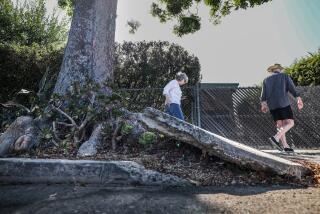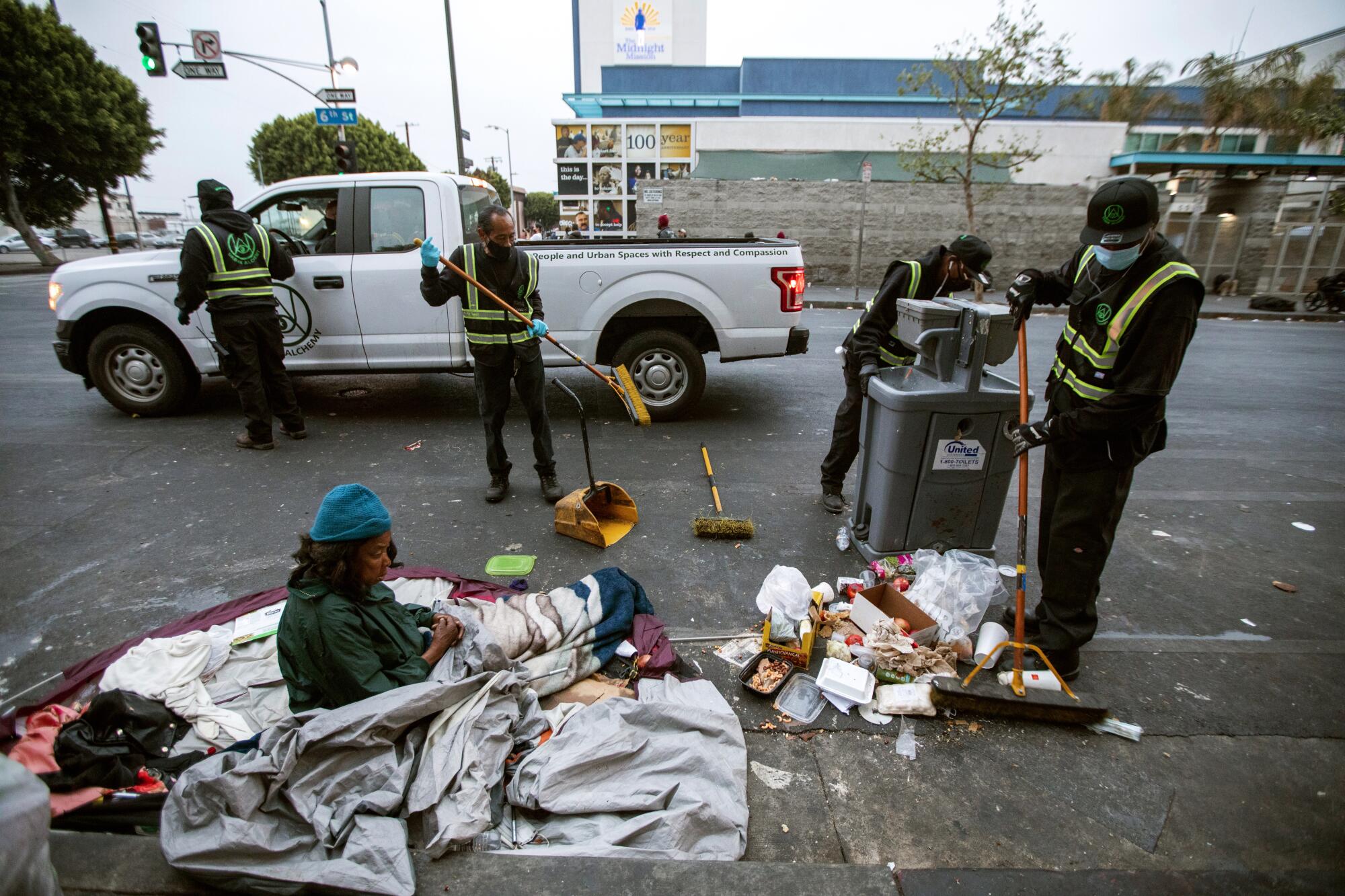
- Share via
The job is filthy.
The location is grim.
The hours could be better.
No doubt, a lot of people would have trouble coming up with a less desirable occupation than cleaning the oozing, trash-strewn streets of skid row before dawn every weekday morning, a job that requires tiptoeing around syringes and rats. But for the broom brigade that gathers long before the sun rises, it’s work they’re happy to have, because job prospects were somewhat limited.
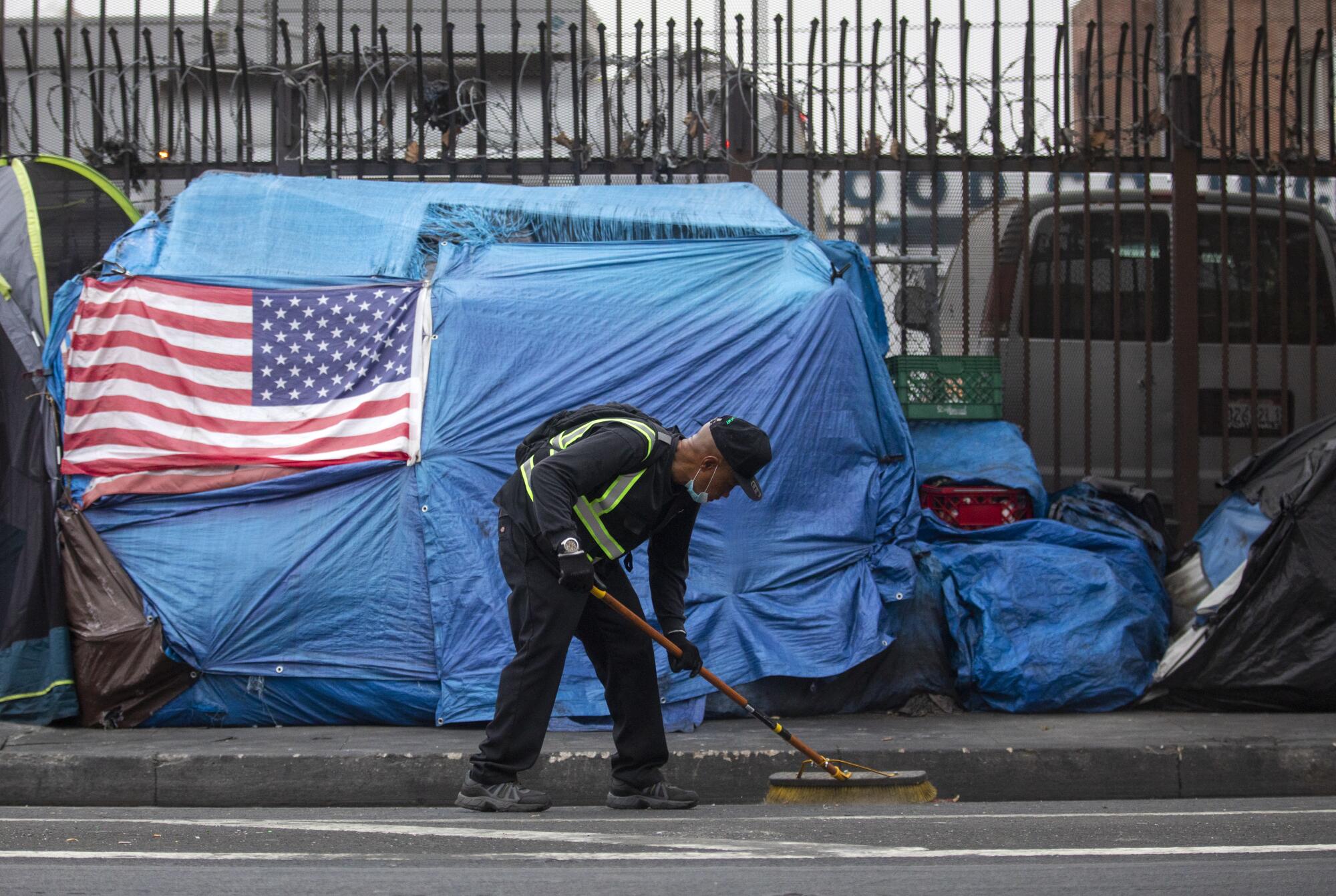
Many are ex-cons. Many are, or were, homeless.
“I’d say it’s about half and half,” said Ricardo Barron, director of Urban Alchemy’s skid row L.A. Clean Team.
“I’m very grateful to be working,” said Ronald Malo, 77. He wasn’t even on duty the day I visited but showed up anyway, at 4:30 a.m., to say hello to the pals he’s made in just two months on the job.
Malo, who did 25 years for a third-strike offense, chatted with Marcus Pelham, 69, who got this job on a recommendation from his parole officer.
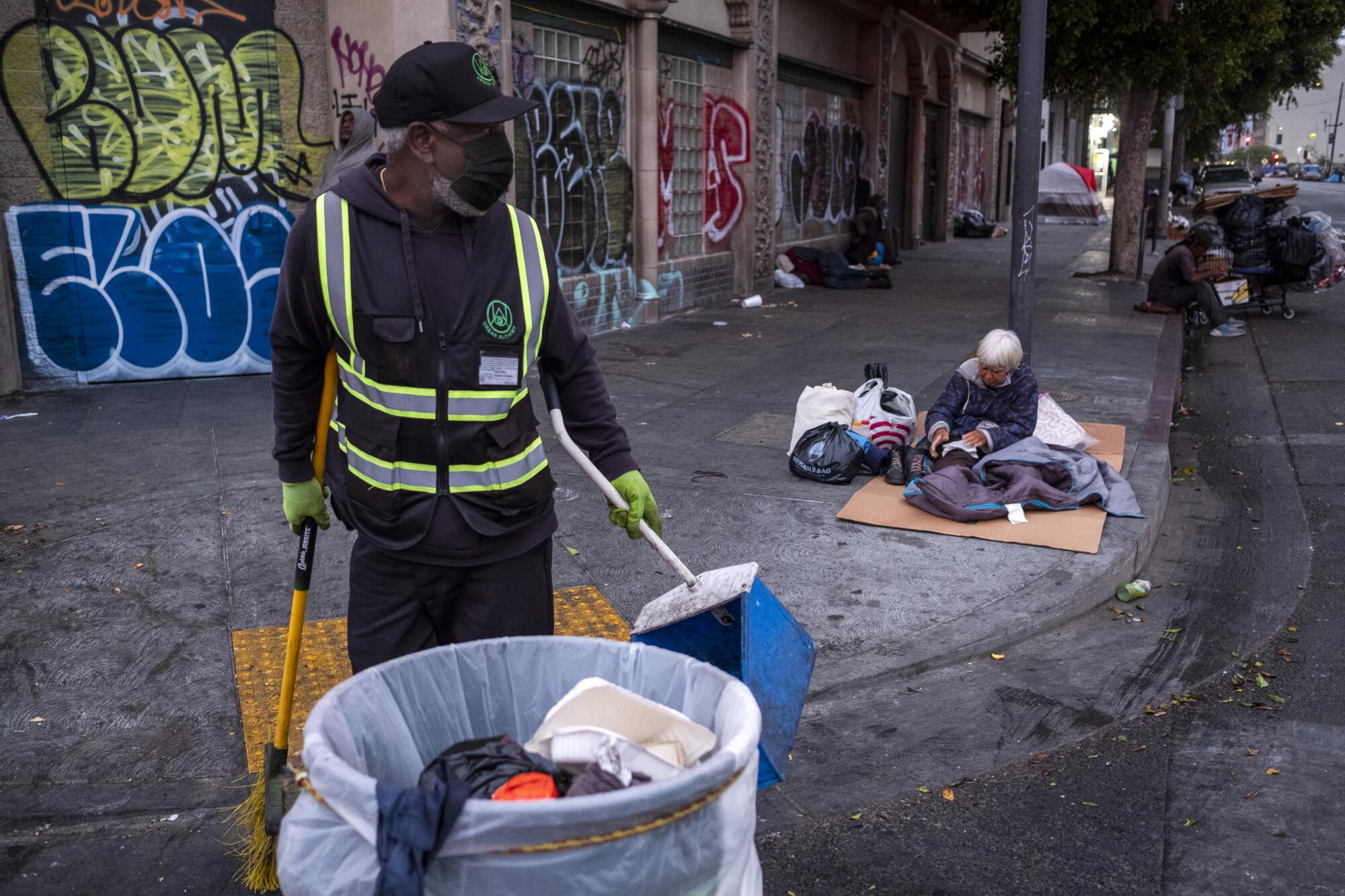
“It gives me a chance to pay back,” said Pelham. “I’ve been taking all my life.”
Pelham was one of the originals. He started on Aug. 1, 2019.
This is not a social program, said Lena Miller, who started Urban Alchemy in San Francisco in 2018 to clean the streets and public restrooms and provide portable showers. The goal was “to bring a sense of peace and respect to America’s most chaotic urban areas,” where addiction, mental illness and homelessness are all common. L.A. city officials liked the sounds of it and awarded Urban Alchemy a contract, with funding from the state.
“This is a business,” Miller said, and although there are lots of second-chance cases among the nonprofit’s hires, she’s serious about screening job prospects and holding them accountable. “We’ll work with you a little bit, but at the end of the day, we’ve got a service to provide.”
After talking to Miller, I found myself thinking about how Los Angeles has thousands of homeless people and others who could use a job and a second chance, as well as thousands of places that need a good cleanup. And on the day I visited skid row, even before the sun came up, I was considering the possibilities, if only we could take what works and give it room to grow.
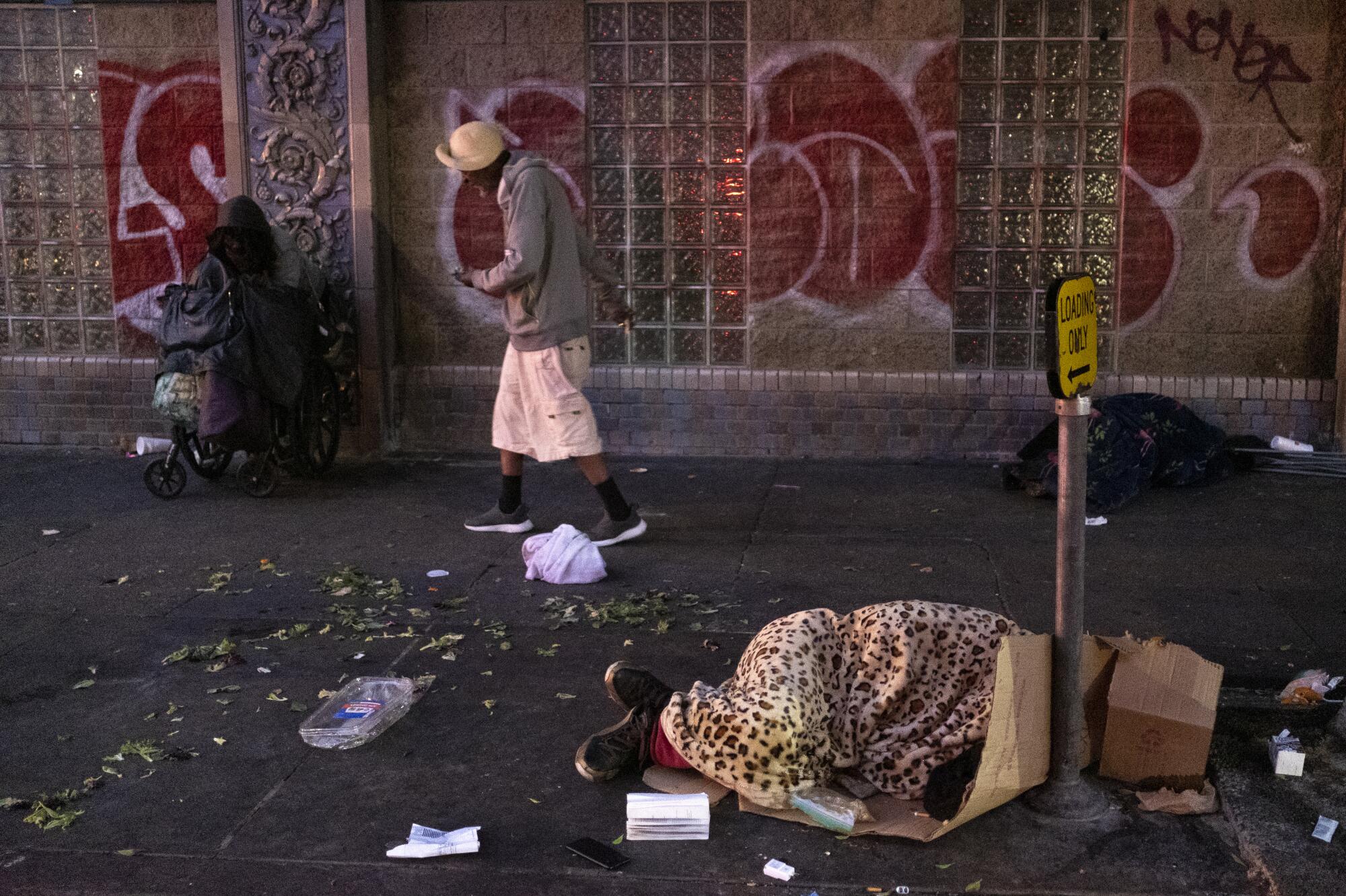
The crew I followed got a little pep talk before the 5-9 a.m. shift began. (There’s a daily 10 a.m. to 2 p.m. shift, too, and some employees work a double.)
“I’m a former lifelong offender myself, and if I could make it, anybody can,” said BayRon Wilson, director of operations.
The practitioners, as the workers are called, memorize seven guiding principles, and the theme for the day was self-discipline. Sometimes there’s pushback from tent dwellers, who might have addiction or mental health issues, or argue about what gets scooped into trash bins. And that’s where self-discipline comes into play.
I asked practitioner Jasmone Lee, 34, who was homeless recently but now has a place in Watts, to name the seven principles. She started at the top and finished with a smile.
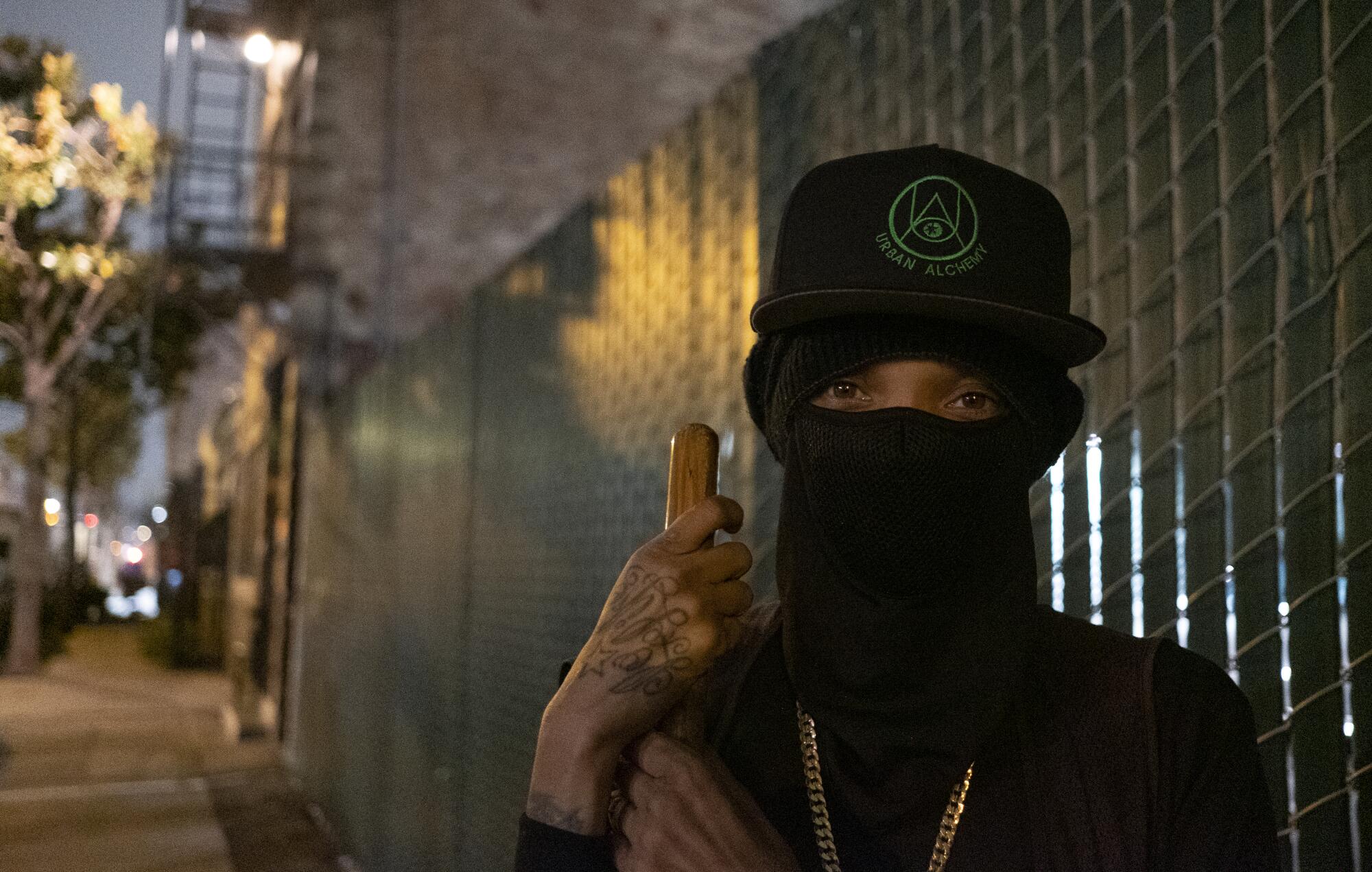
“Respect, integrity, empathy, empowerment, self-discipline, self-control, self-esteem.”
“Stick to your groups and be careful out there,” a supervisor said as the crew of 18 grabbed trash bins, brooms and shovels and headed out to circle the row.
Pelham walked a half block north on Stanford Avenue and turned left on 5th Street to work toward San Pedro Street. These streets have been lined with tents and tarps for years in a city with an ever-growing homeless population and one failed plan after another to get everyone indoors.
Some homeless people are fastidious about keeping things as clean as possible around their tents, which helps keep rats away. But not everyone. Pelham swept up food wrappers, soiled takeout containers and plastic bags of trash left at the curb by residents, many of whom had not yet emerged from their tents.
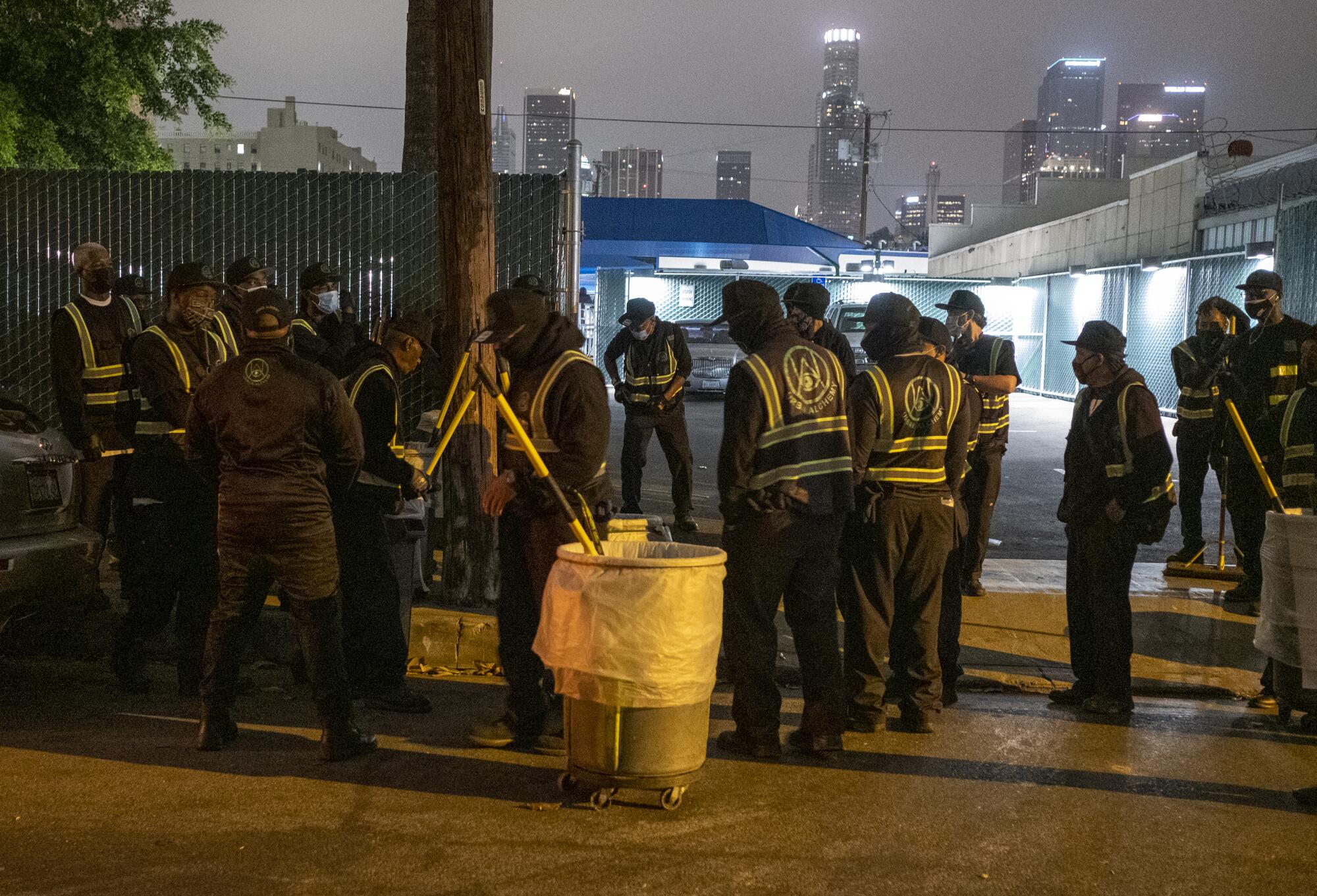
The Clean Team picks up a ton or more of trash each day, seven days a week, and between 100 and 300 needles. It would seem to make sense for the city to put more garbage bins on every block, but Pelham doesn’t mind.
“Trash is cash,” he said.
The job pays $16 an hour, with benefits, and Pelham said he’s had homeless people offer him $1 tips for his service. But you have to watch your back on these morning rounds, Pelham said, telling me some people can be aggressive, and the sound of gunshots is not uncommon.
“It’s dangerous out here, and it’s kind,” he said.
In L.A. County, more than 1,000 homeless people die each year, and for quite a few, skid row is the final resting place.
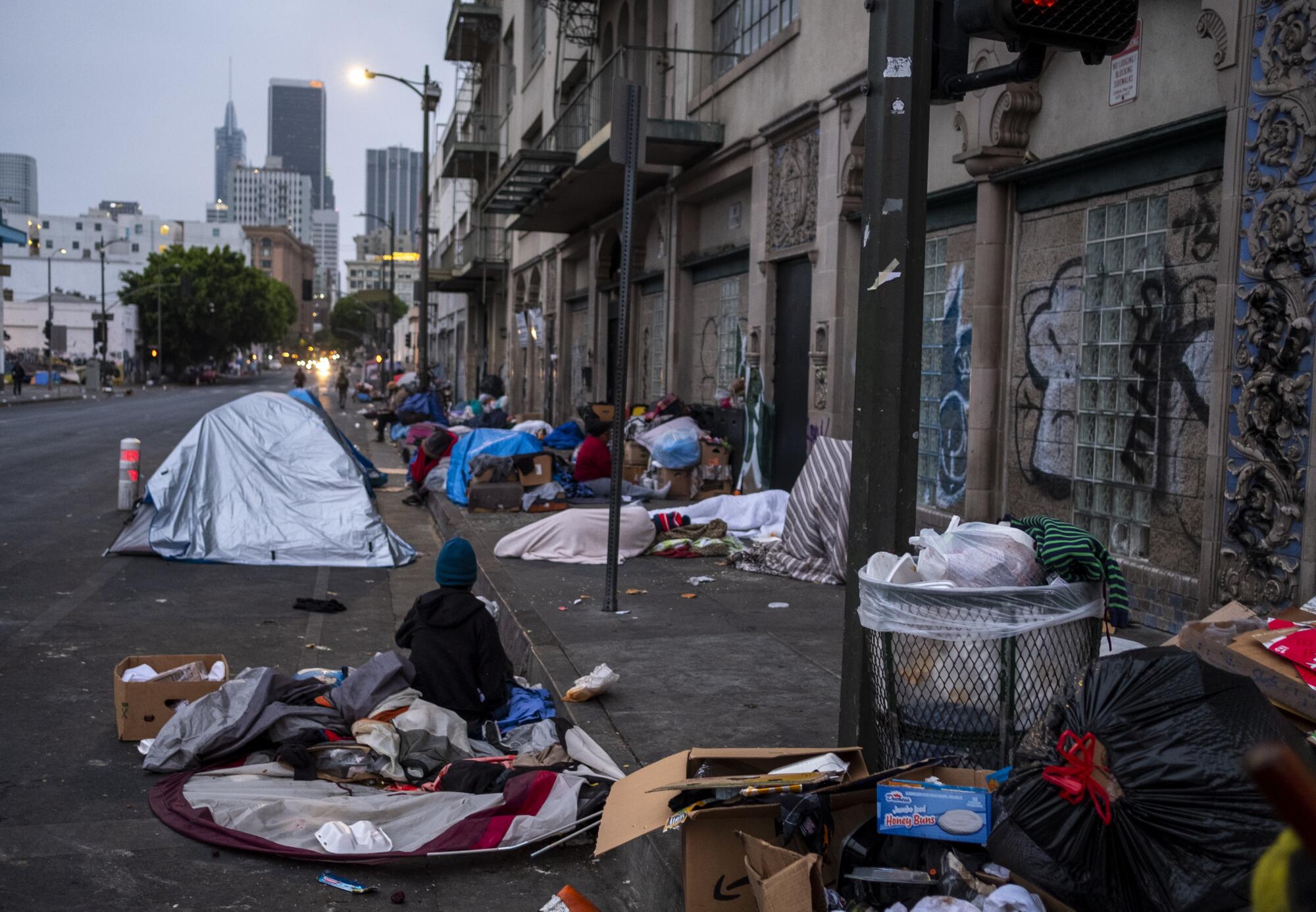
“I’ve seen dead bodies. A lot of bodies,” said Pelham. Since he began this job, he added, “I have a different respect for people out here. A lot of them can’t help themselves. That’s what it’s about.”
Over at 6th and Wall, Barney Hines Jr., 56, trotted across the intersection to help Jasmone Lee attack a sizable pile of trash. Hines was bent over at the waist, and I asked if he had back trouble. He said he was fine and told me he lives in a tent on 6th Street. He had just started this job and is happy to have it.
On San Pedro, Brian Williams, 47, worked the block between 5th and 6th. On the corner of 5th, with the sun coming up, commerce began to stir at an outdoor post that sells single cigarettes and single shots of hard liquor. Williams kept his eye on the job, filling extra-large white trash bags.
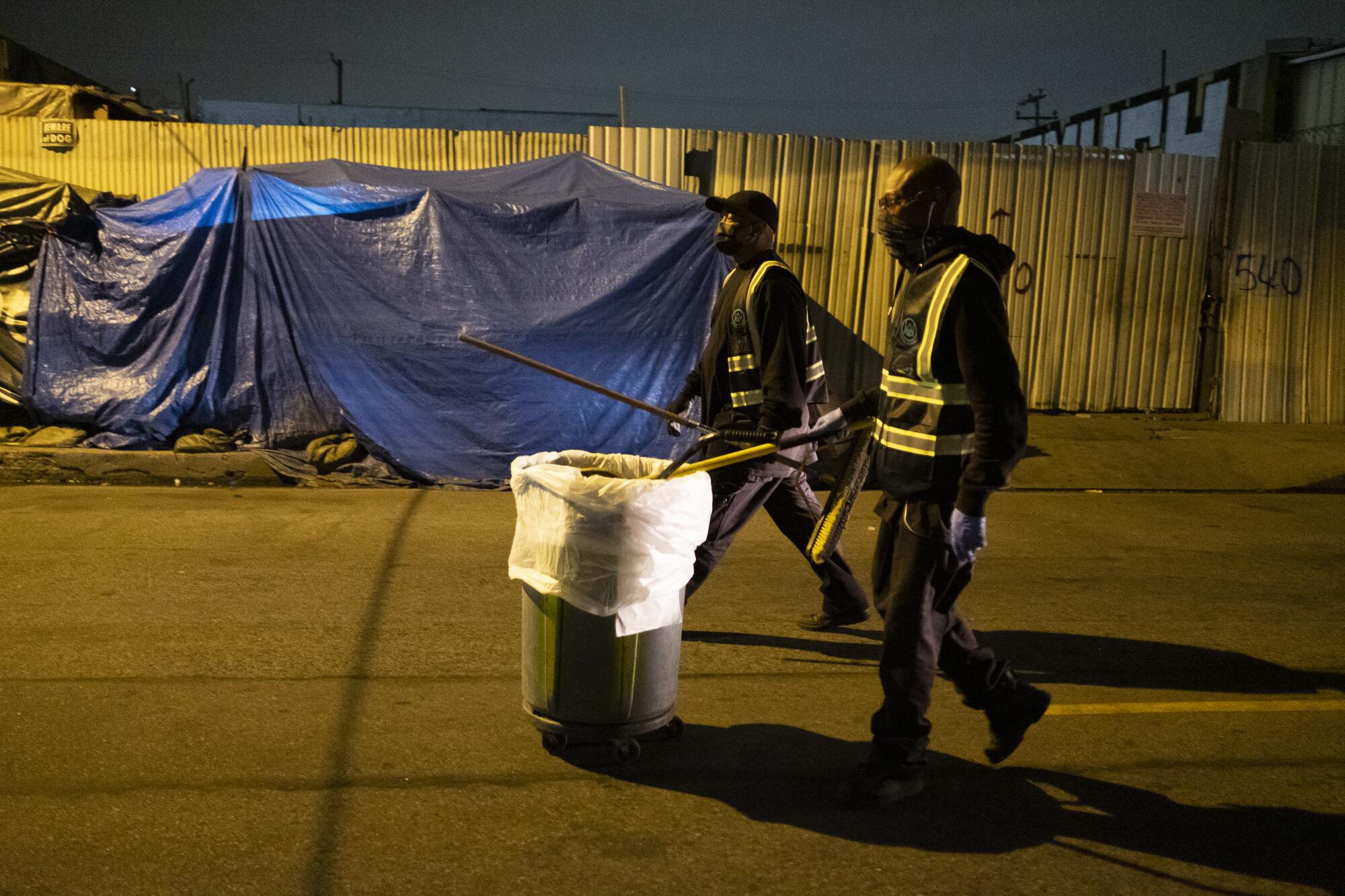
“I look at it as, we’re all the same. Nobody is better than anybody else, and we could all end up like this,” said Williams.
“I’m going to be a truck driver before I leave this earth,” he said. “Never give up on life.”
Billy “Bo” Gladney, 61, stood outside 554 San Pedro and aimed his phone camera at a dead rat, about 6 inches long, lying in the gutter.
“I’ve seen them five times as big as that. Bigger than a cat,” said Gladney, who told me he comes upon 20 or so dead rats and pigeons every day. The crews are instructed to send in photos and locations so a sanitation truck can come make a pickup.
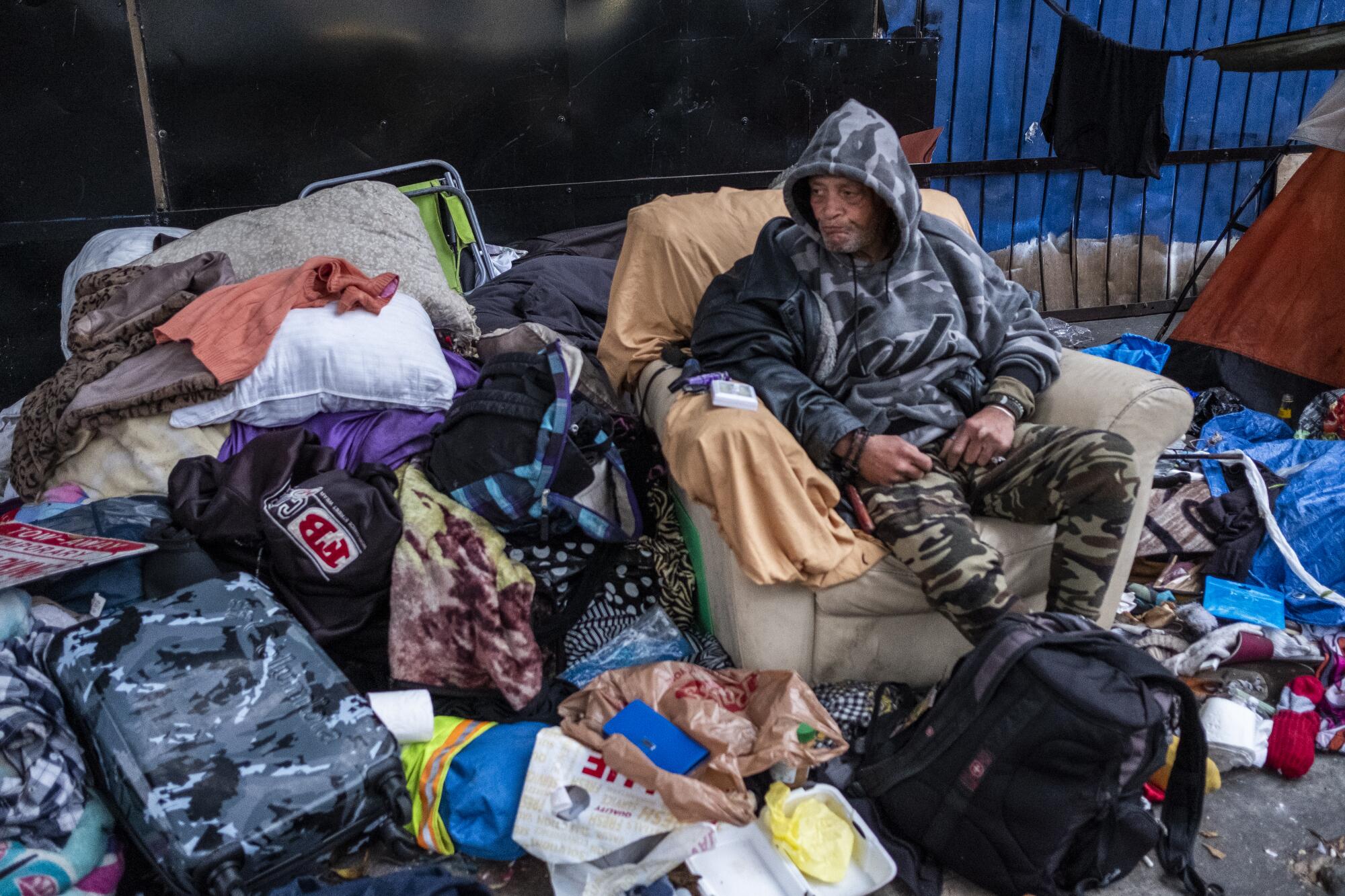
“Most of them are hit by cars,” Gladney said. “But I think it’s also the water they drink. It has feces in it.”
On the sidewalk at 6th and San Pedro, Gladney looked in on a human form covered by a blanket.
“Is that you, Mama?” he said. The person stirred ever so slightly, and Gladney said Mama seemed to appreciate having the crews check in on her each morning.
Barron, the director of the skid row crew, grew up in an Echo Park gang, got shot in the chest as a teenager and nearly died when the bullet pierced his lung. He recovered, shot somebody in a bar, did 20 years, got out of prison and then lived in his truck.
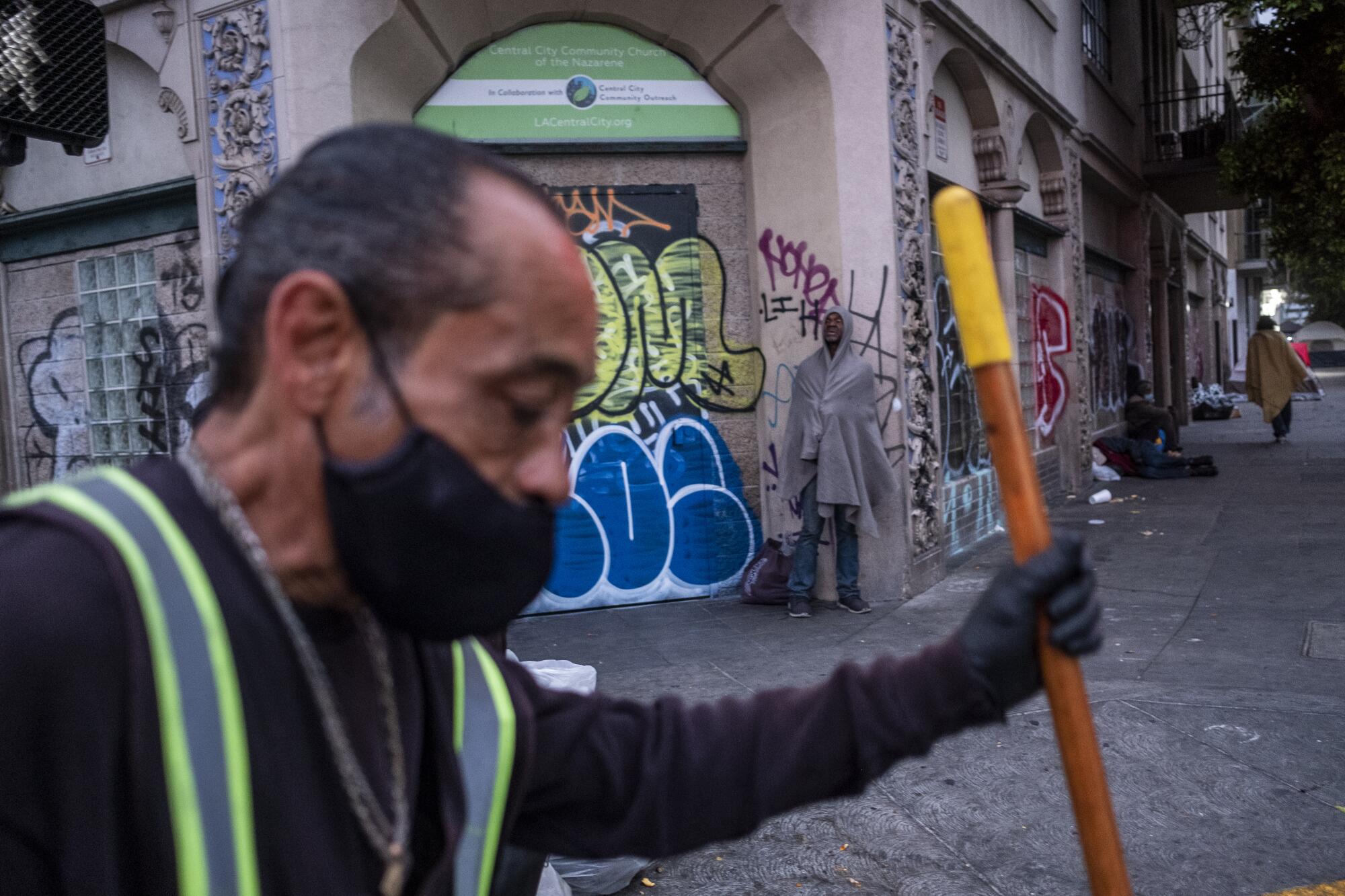
In prison, he said, he took anger management classes and went to AA meetings. Psychiatrists told him his childhood experiences had created a paranoid young man who was still suffering from post-traumatic stress, all of which was true. But Barron said he knew he needed to take some responsibility and come to terms with the bad choices he’d made.
Today, Barron lives with his wife and daughter in a home near USC. He started working for the Clean Team when it opened in 2019. Miller, the CEO, said Barron was a quiet employee, so he wasn’t thought of initially as a management prospect. But then there was an opening.
“We said, OK, let’s give him a shot and made him superintendent, then deputy director, and then director,” said Miller, who told me that like a lot of people who spend time in prison, Barron has what she calls emotional intelligence. “He’s been a beast on everything, and I mean that in a good way. He’s consistent, and he knows how to talk not just to the community, but with his employees.”
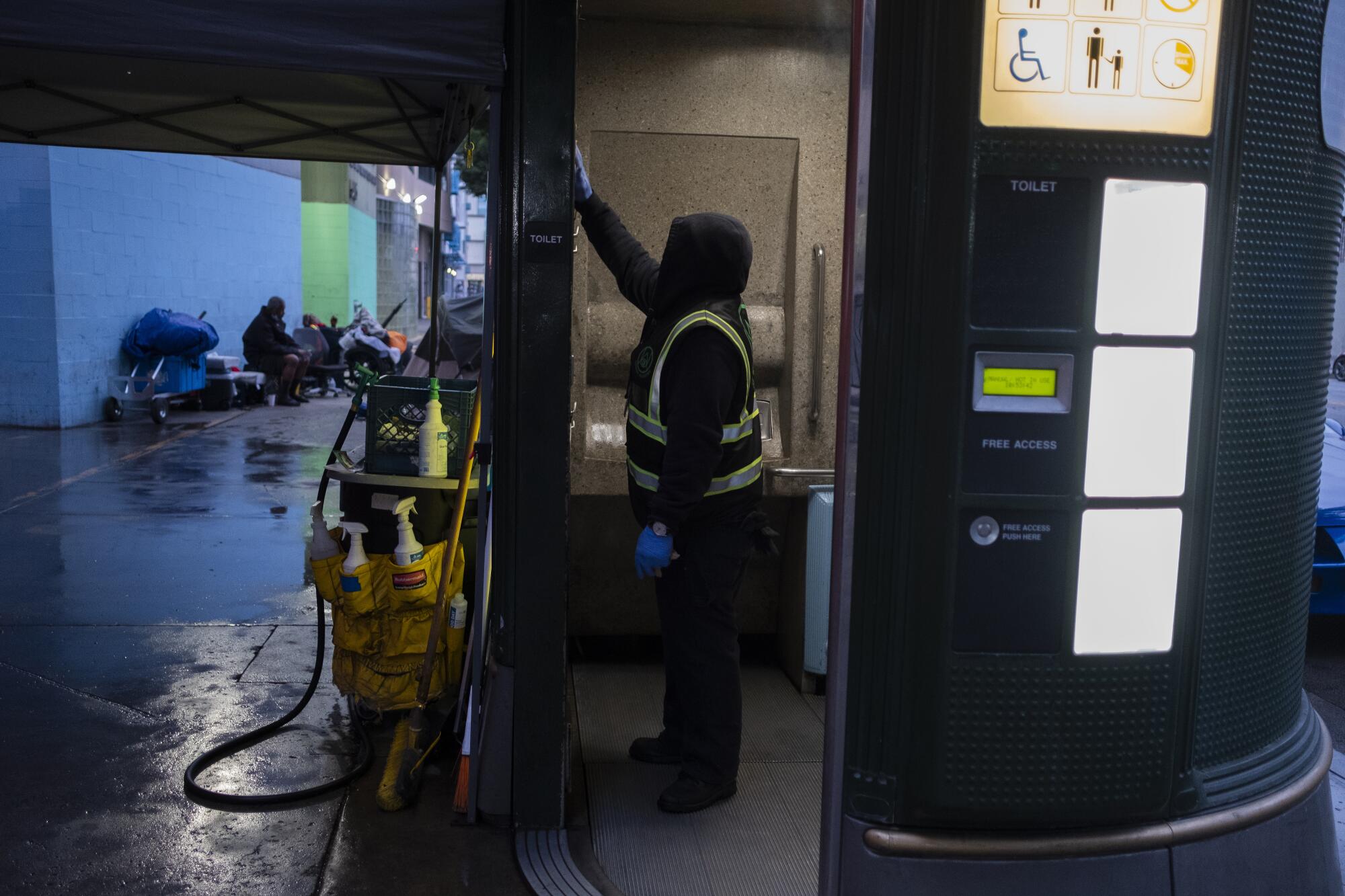
Barron interviews job prospects with a discerning eye. He knows not everyone is ready to break free of the past, but given his own history, he has a good eye for those who yearn for a chance at redemption and rehabilitation.
“I think there’s beautiful poetry in this work. You take people who society has written off,” said Miller, and they clean and help keep skid row safe “for people who, again, society has thrown away.”
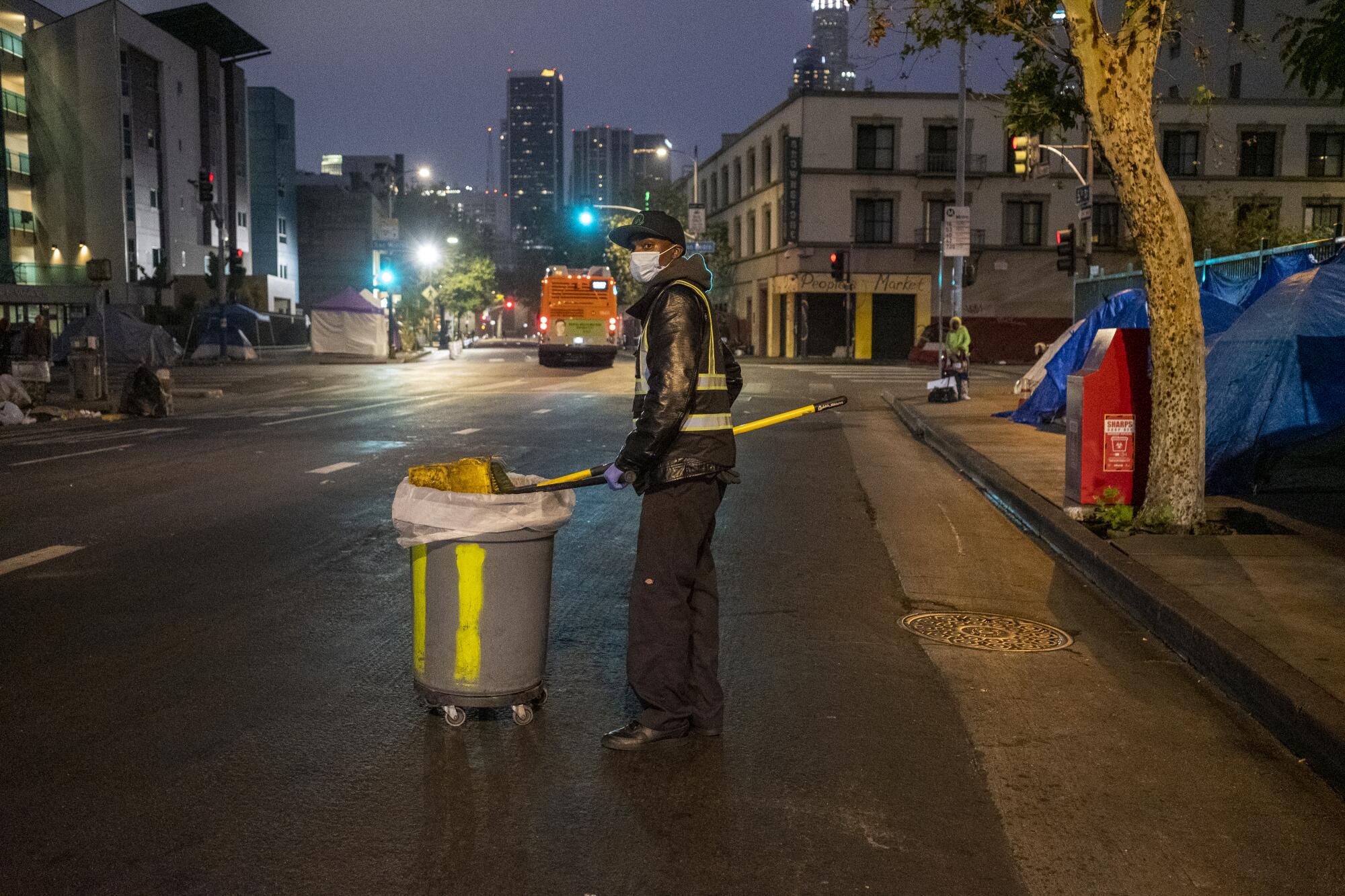
Time photographer Francine Orr contributed to this story.
More to Read
Sign up for Essential California
The most important California stories and recommendations in your inbox every morning.
You may occasionally receive promotional content from the Los Angeles Times.


